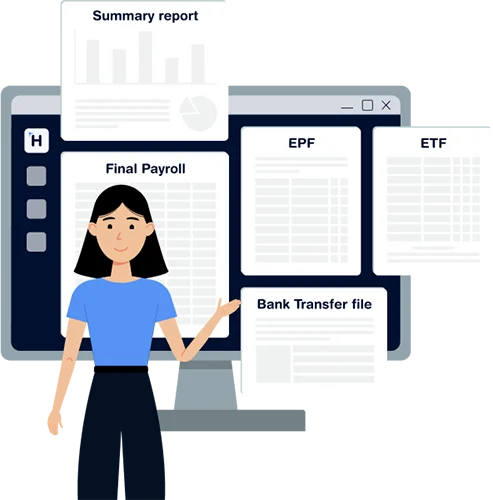For many small and medium enterprises in Sri Lanka, employee contracts still live inside dusty files or outdated folders on office desktops. While this method might have worked in the early days, it’s increasingly inefficient and risky as teams grow, compliance requirements evolve, and employees expect more professionalism.
Digitally managing employee contracts through an HRIS system or contract management feature offers a structured, secure, and time-saving way to stay on top of your HR documentation. It not only reduces administrative pressure but also supports better compliance and employee trust.
Why Paper Contracts Don’t Work for Growing SMEs
When you’re operating with a handful of employees, tracking contracts manually may not seem like a big deal. But as your team expands and roles change, here’s what tends to happen:
- Contracts get misplaced or mixed up between departments
- Expiry dates or probation periods are forgotten
- Manual renewals take too much time
- Amendments and revisions lack version control
If you’re still relying on paper contracts or storing them loosely on individual computers, you’re leaving room for error, non-compliance, and poor employee experience.
What Digital Contract Management Actually Means
Digital contract management means storing, updating, and tracking employee contracts securely through a centralized HR software platform. It allows you to:
- Upload signed contracts to an employee’s profile
- Track start dates, probation periods, renewals, and end dates
- Add amendments and maintain a version history
- Set reminders for contract actions
- Provide secure access based on roles or departments
All of this can be done through a cloud-based system, so you’re not tied to physical office files or single-device storage. It also allows HR or managers to retrieve any document within seconds, something not possible with traditional filing.
Benefits of Managing Contracts Digitally for SMEs
Here’s how digital contract management makes life easier for SME owners, HR teams, and employees alike:
1. Centralized access
All contracts are stored in one place: searchable, organized, and attached to individual employee profiles.
2. Greater accuracy
No more mismatched documents or unsigned versions. Every change is tracked and stored with version history.
3. Time savings
You can upload templates, generate offer letters, and send renewal reminders without starting from scratch each time.
4. Compliance made easier
With contract data stored digitally, it becomes simpler to demonstrate compliance with labour regulations during audits or inspections. You can quickly prove that contracts have been issued, signed, and stored properly.
5. Improved employee trust
Employees feel more secure when contracts are accessible, properly signed, and managed professionally. It shows that the business is serious about structure and fair treatment.
Supporting Common SME Scenarios
Let’s say your SME is hiring a new salesperson. With a digital contract system, you can:
- Pull up a pre-approved contract template
- Customize it for the role, including salary, benefits, and probation terms
- Send it to the employee digitally
- Receive the signed version and save it against their profile
- Set reminders for probation completion or future renewal
This same process can be repeated for promotions, salary revisions, or contract conversions, all without creating a new document trail from scratch.
Making the Transition
If you’re still relying on paper contracts or scattered digital files, the transition doesn’t have to be complex. Many HRIS platforms allow you to:
- Upload existing scanned contracts
- Start using digital templates going forward
- Set up role-based access so only authorized personnel can view or edit contract documents
Even starting small with just new hires or one department can make a meaningful difference.
Contracts That Grow With Your Business
Your HR documents need to grow with your business. What may have worked when your team had 3 or 4 employees will no longer hold up when you have 15, 20, or more people across different locations and job roles.
By shifting to digital contract management early, you reduce future risk and administrative effort. It’s a foundation that allows your business to scale efficiently, stay compliant, and build stronger, more professional relationships with your team.



